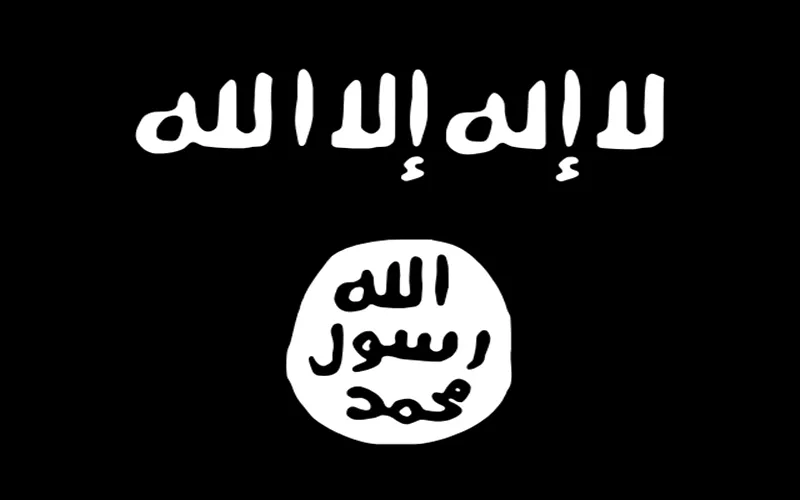President Obama has commenced the 'War on Terror - 2.0', by targeting the Islamic State in Iraq and Syria (ISIS). His pre-occupation so far has been on building-up as large a coalition as possible, rather than in outlining a strategy for the war. Excepting for the fact that there will be no American boots on the ground and that the War will be largely fought from the air by drones and air-force, essentially as a force-multiplier to the ground forces of the Iraqi Army and the Kurdish Peshmarga, who were already bearing the brunt of ISIS attacks, nothing else is clear either from the White House or the NATO Command or even the Arab allies in the US led- Coalition. What this 'Coalition of the Willing' will do and will not do remains unsaid and unknown.
The enemy, however, remains very clear, focussed and determined. The ISIS, though far from being a state, has already shown remarkable statecraft in dealing with States that are members of this coalition. It has rewarded Turkey for refusing to sign the Joint Communique in Riyadh along with 10 other Arab States with the US, by releasing all the 49 Turkish hostages captured in June this year in Mosul. While it has tried to win over the largest country in the region and a NATO partner to boot, it had also made a devilish plan to strike terror at the heart of the weakest link in the chain, i.e., Australia. Its soldiers were instructed to pluck an Australian from one of the busier streets in Sydney or Melbourne and behead him in public in the signature style of the ISIS. That was meant to be a warning for joining the US led - Coalition. A British journalist has already been beheaded and more terror has been predicted on the soil of Britain by the returning Anglo-Saxon soldiers of the ISIS. Of course, such acts of terror do not unseat governments in Australia, UK and the US but they certainly sow doubts in the minds of their citizenry on the utility of fighting such wars in far off lands. Weakening the resolve of the enemy is the first step towards abandoning the War, and that is the strategy of the ISIS. Nearer home, its strategy is to capture more territory and it is already breezing past several ungoverned areas of Syria, thus pushing the Kurdish residents to flee from their villages to Turkey. There is no Peshmarga here to stop their march; nor are the soldiers of Bashar al- Assad for they had already vacated this area to the Kurds to carve out an autonomous province and menace Turkey.
The likely march of ISIS forces is difficult to predict, though it is reported that their next target would be Deir az- Zor in Syria's south-eastern border with Iraq. Their march inside Syria has also led to the fleeing and displacement of the Alwaites, the ruling sect, from the periphery to the areas closer to Damascus. What has been its impact on the significant and sizeable population of Syrian Christians is not known. Will the ISIS then head towards Aleppo and Homs and meet up with the remnant rebel forces of Jabhut ul-Nusra and others fighting Assad's army? What would then ensue, a fight to the finish between the two or their joining of hands to target Assad's forces, remains to be seen.
It is in this unclear scenario that the (strategically) unguided drones and missiles of the US Coalition are going to strike the ISIS. Would the Sunni Arab Coalition partners let the drones stop the march of ISIS when they are heading towards Damascus? Will President Obama, who clearly despises Assad for his 'inhuman suppression of the legitimate democratic aspirations of his people', stop the ISIS from taking on the 'discredited President' of Syria? Does he really intend to defeat, disrupt and dismantle the ISIS terror structure or will he simply guide them away from Iraq and Turkish borders towards Damascus. That may well be the secret desire of several Gulf monarchs, just as the Allied forces thought during the early days of the Second World War that they could divert Hitler to attack the Soviet Union and ensure peace in Western Europe.
But then, what about the day after? What if the ISIS forces defeat the Army of Assad and take over Damascus? It will be just another Libya after Gaddafi's fall. The country will break into civil war and disintegrate along ethnic lines. This is a prospect that awaits both Iraq and Syria. The Kurdish populations in Iraq, Syria, Turkey and Iran will emerge as the largest beneficiaries, striking out as an independent country, a prospect dreaded by all the four countries that hold them within their borders now.
Or a more plausible and a likely scenario. The US-led Coalition defeats and disrupts (without dismantling) the ISIS and winds up its 'War on Terror -2.0.' within a short time frame, mainly due to war fatigue. Assad remains in power. His old allies, Iran and Russia come back in force to strengthen him. The millions of Syrian refugees refuse to return to their homes and continue to be a burden on Turkey, Jordan and Lebanon. Moqtada al-Sadr gains in power in Iraq, just as Hezbollah consolidates its position in Syria and Lebanon. Iran's revolutionary guards and Al-quds forces have a free run in Iraq and Syria. The Sunnis across the region feel vulnerable, while those in Iraq and Syria face existential threats.
Remnants of the ISIS return to their home countries and engage in practicing their newly honed skills of terror. Majority of them may take on another weak link in the chain, the Gulf monarchies, for having joined the Coalition of the Satan. Either way, the story will have no happy ending, particularly for Iraq and Syria now, and, for the Gulf Kingdoms in the near future. For, they have let loose a genie that cannot be put back in the bottle.
(The writer is a Visiting Distinguished Fellow at Observer Research Foundation, Delhi)
The views expressed above belong to the author(s). ORF research and analyses now available on Telegram! Click here to access our curated content — blogs, longforms and interviews.




 PREV
PREV


